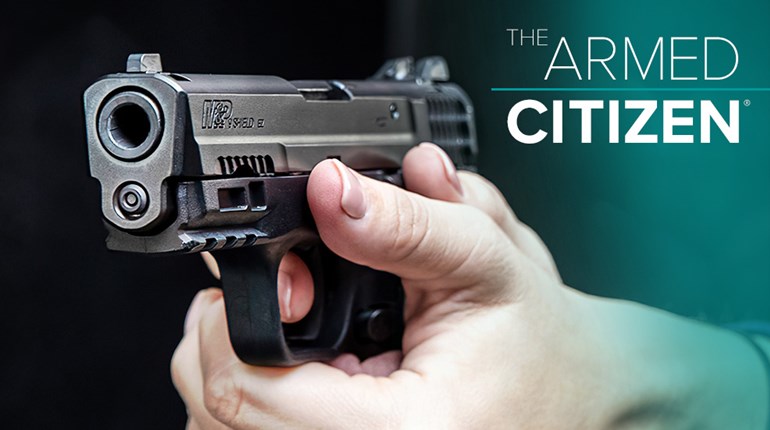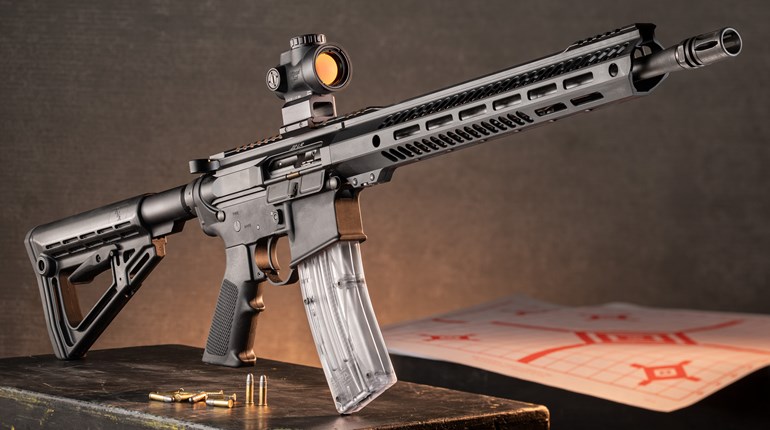
Americans don’t have a constitutional right to bear arms in public, says a 7-4 ruling by the U.S. Court of Appeals for the Ninth Circuit. This majority of judges think your Second Amendment rights stop at your front door.
When an Appeals Court rules that a constitutionally protected right in America is basically irrelevant before the authority of government, this should compel the U.S. Supreme Court to act; after all, it has been more than a decade since they have taken and ruled on a significant Second Amendment case.
This Ninth Circuit ruling doesn’t mince words.
“There is no right to carry arms openly in public; nor is any such right within the scope of the Second Amendment,” U.S. Circuit Judge Jay Bybee wrote for the majority.
By citing gun regulations dating as far back as 14th century England, these seven judges say there is “overwhelming evidence” to allow licensing regimes in places like Hawaii and California to deny anyone they choose their Second Amendment rights outside of their homes.
There is a fiery dissent to this decision.
“The Second Amendment to the United States Constitution guarantees ‘the right of the people to keep and bear Arms,’” Judge Diarmuid O’Scannlain writes, joined by Judges Consuelo Callahan, Sandra Ikuta, and Ryan Nelson.
“Today, a majority of our court has decided that the Second Amendment does not mean what it says. Instead, the majority holds that while the Second Amendment may guarantee the right to keep a firearm for self-defense within one’s home, it provides no right whatsoever to bear—i.e., to carry—that same firearm for self-defense in any other place… . We now become the first and only court of appeals to hold that public carry falls entirely outside the scope of the Amendment's protections.”
“The Second Amendment’s text, history and structure, and the Supreme Court’s reasoning in Heller, all point squarely to the same conclusion: Armed self-defense in public is at the very core of the Second Amendment right,” O’Scannlain writes.
This case began when a plaintiff named George Young sued Hawaii in 2012 for denying his applications for permits to carry a concealed or openly visible handgun. Hawaii is a “may-issue” state, meaning they claim discretion to deny anyone the ability to use their Second Amendment right to bear arms. Even if the person provides to the licensing authority evidence that should satisfy the requirement that they prove a “need” for their constitutional right to bear arms, the applicant is still likely to be denied.
When this case was heard last September, a lawyer for Hawaii said the state’s gun laws do allow security guards to obtain licenses to open-carry, so those who can afford armed security can still get protection. The common folk, though, according to the Ninth Circuit, don’t have the same rights as the elites do.
“In order to establish its startling conclusion that the carrying of common arms for self-defense lies completely outside the Second Amendment, the majority surely must show that complete prohibitions on open public carry were historically understood to be lawful,” O’Scannlain writes in his dissent. “Perhaps, one would think, the majority might have done so through evidence that the Founding generation had regular experience with such prohibitions and understood them to pose no problem to the new Constitution they were creating. Perhaps the majority might have marshaled evidence that such prohibitions had been commonly upheld against relevant legal challenges in early America. Or perhaps, at least, the majority might have found evidence that such prohibitions, where not subjected to judicial scrutiny, were historically widespread and uncontroversial. But the majority has found none of the above. All the majority has managed to demonstrate is that the manner of open public carry has at times been regulated… .”
O’Scannlain then asks, “What right enshrined in our Constitution has not historically been regulated to some degree? Surely, we would never hold (for example) that the right to speak publicly on political matters lies wholly outside the First Amendment merely because such speech has been subject to ‘longstanding, accepted regulation’ in the form of libel laws, defamation laws and time-place-and-manner restrictions. Yet this is exactly how the majority appears to believe we must interpret the Second Amendment. The majority’s invitation to interpret the right to bear arms ‘as a second-class right, subject to an entirely different body of rules than the other Bill of Rights guarantees,’ must be rejected.”
Judge O’Scannlain concludes by writing: “In the face of this damning factual record, both Hawaii and the majority urge that we should simply look the other way. No thanks!”
Three other circuit courts (the Second, Third and Fourth Circuits) have given states essentially unlimited discretion and regulatory authority over public carry, without actually holding that it is wholly unprotected by the Second Amendment. Two others have struck down such laws (the D.C. Circuit and the Seventh Circuit). The Ninth Circuit alone has found public carry categorically outside the Second Amendment’s scope. This disparity between circuit courts on an urgent matter concerning a fundamental civil right should make this case ripe for a U.S. Supreme Court review.


































